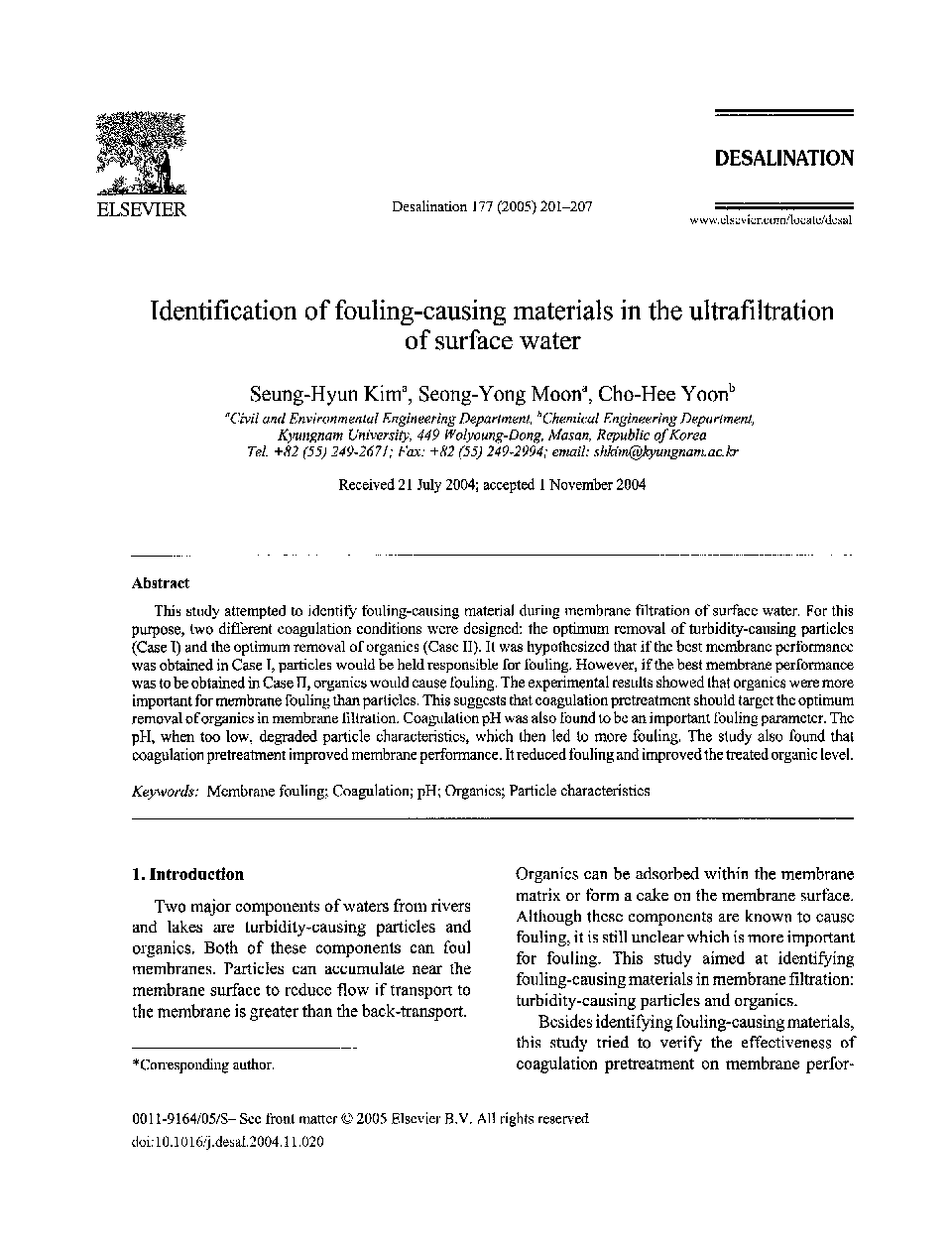| Article ID | Journal | Published Year | Pages | File Type |
|---|---|---|---|---|
| 9681183 | Desalination | 2005 | 7 Pages |
Abstract
This study attempted to identify fouling-causing material during membrane filtration of surface water. For this purpose, two different coagulation conditions were designed: the optimum removal of turbidity-causing particles (Case I) and the optimum removal of organics (Case II). It was hypothesized that if the best membrane performance was obtained in Case I, particles would be held responsible for fouling. However, if the best membrane performance was to be obtained in Case II, organics would cause fouling. The experimental results showed that organics were more important for membrane fouling than particles. This suggests that coagulation pretreatment should target the optimum removal of organics in membrane filtration. Coagulation pH was also found to be an important fouling parameter. The pH, when too low, degraded particle characteristics, which then led to more fouling. The study also found that coagulation pretreatment improved membrane performance. It reduced fouling and improved the treated organic level.
Related Topics
Physical Sciences and Engineering
Chemical Engineering
Filtration and Separation
Authors
Seung-Hyun Kim, Seong-Yong Moon, Cho-Hee Yoon,
